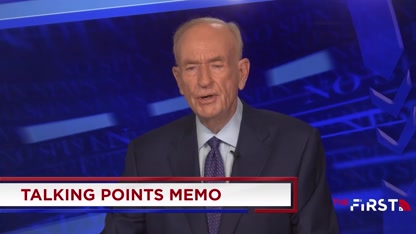
www.theamericanconservative.com
A Wise Policy Toward Georgia Could be Win-Win
Foreign Affairs
A Wise Policy Toward Georgia Could be Win-Win
Measures currently being considered in the U.S. Congress gravely misread this ancient country in the Caucasus.
In late 2013, European Union and U.S. government officials presented Ukraine with an either/or choice. Ukraine could either sign an EU association agreement and build a future oriented to the West, or it could build a future with Russia. It could not do both. The obviously preferable option—for Ukraine—of trading with both and remaining neutral, was simply rejected. The option of neutrality in the political-military sphere was likewise rejected.
That maintaining cordial relations with both Russia and the West made better sense for Ukraine should have been obvious even to an average high school student. Roughly half the country identified with Russia—its language and culture—and the other half identified more with the West. Many Ukrainians identified with both to varying degrees.
The West, however, insisted that Ukraine choose one side or the other, and the tragic result is there for all to see.
Western leaders now risk making the same mistake with Georgia, a nation of 3.7 million people sandwiched between Russia and Turkey. A chorus of voices from the U.S. Congress, EU institutions, and Western mass media assure us that Georgia also needs to make an either/or choice. It can either pursue political, economic, and military integration into the Euro-Atlantic bloc, or it can continue trading with Russia and allowing China to invest in its economy. These voices assure us that the Georgian people have already decided in favor of the Western world—and against Russia.
To help move this vision forward, the Congressional sponsors of the MEGOBARI Act (megobari means “friend” in Georgian) announced plans to support Georgia’s “Euro-Atlantic integration” and counter the influence of “authoritarian regimes, particularly Russia.” Rep. Richard Hudson (R-SC), a MEGOBARI co-sponsor, underlined the moral urgency of this either/or strategy. “Vladimir Putin,” Hudson said, “is an evil dictator who will do whatever it takes to undermine democracy in Georgia.” He added that “there must be consequences.” These consequences, as it turns out, are to be borne by Georgia if it continues to continue to trade with its enormous neighbor, Russia, even though such trade currently accounts for a far larger share of Georgian GDP than does trade with the U.S. Under the proposed law, failure to comply would lead to stiff sanctions on Georgians.
Still more alarming, the MEGOBARI Act in its current form insists that Georgia uphold its “constitutional obligation to advance the country toward membership in the European Union and NATO.” Why must it do so? Purportedly because only such a course is in keeping with the Georgian people’s yearning for “a future with the people of Europe”—and a future as far as possible from the people of Russia.
According to the bill’s authors, Georgia’s sovereignty will be at risk if its government, presently controlled by the populist Georgian Dream party, continues to permit Chinese investment. One might think that this is the kind of decision best left to the judgment of the Georgian government to decide on behalf of its own citizens—if it is indeed truly sovereign—but apparently Congress doesn’t see the irony.
Columbia University economist Jeffrey Sachs, in a recent address to Georgians, said that trading with all of its neighbors, and preserving peace with all of them, would best serve the country’s interests. “That’s how you do economic development,” Sachs concluded. As the antiwar author Scott Horton pointed out at the same forum in Tbilisi last June, Russia has demonstrated its openness to a live-and-let-live trade arrangement, as is suggested by its grudging toleration of the BTC pipeline (built by a consortium of mostly Western oil firms led by BP, with the purpose of sidelining Russia as a transit country).
Western mainstream media have alleged that the October 2024 electoral victory of the Georgian Dream party and its current president, Mikheil Kavelashvili, was likely “illegitimate.” This conclusion is unconvincing. Indeed, like much of what one reads about Georgia today in the mainstream press, it betrays a superficial understanding of the complex, transcontinental country.
The panic over “Putin’s Russia” allegedly running roughshod over Georgia’s sovereignty and democracy, for example, is almost comical when compared with the reality. For one thing, Georgia and Russia currently do not even have diplomatic relations. Their formal relationship largely collapsed as a result of the 2008 war, a war which, as is now understood, was precipitated by the then-President Mikheil Saakashvili after he foolishly took seriously U.S. assurances about Georgia’s certain membership in NATO. Saakashvili escalated conflict in South Ossetia with the goal of reincorporating the province back into Georgia. The ensuing war led to bitter feelings on the Georgian side toward the government of Vladimir Putin, feelings which have persisted.
Now, far from being conscience-stricken after the 2008 war—which after all they helped precipitate—Western liberals instead are doubling down. Soros and the National Endowment for Democracy have had much success, in the ensuing years, bringing Georgia’s media, educational, and political spheres into harmony with U.S. and EU priorities. Armed with LGBT slogans, Western-backed NGOs are presently leading a campaign against the Georgian Orthodox church.
Former Deputy Assistant Secretary of the U.S. State Department Mike Benz has recently given a masterclass on how such NGOs frequently manage to dominate the entire public sphere. In Georgia, their intimidation tactics have cowed many into silence—lest they be accused of being “spokespersons for Putin.” Such fears, indeed, explain why I have been obliged to quote my Georgian sources anonymously.
When the Georgian Dream party came to power in 2012, it was in the wake of widespread public exhaustion with Mikheil Saakashvili. Georgian Dream candidates have been re-elected ever since and, until the party started disagreeing with Western foreign policy preferences, those victories were not contested in the West. These disagreements arose when Georgia failed to stop trading with Russia after 2022, and were further intensified after the Kavelashvili government supported a law requiring the registration of foreign-funded NGOs.
The Georgian Dream’s popularity, however, is easy to explain. Georgia has consistently recorded positive economic growth since the party came to power. (The most recent World Bank statistics are for 2023, and show a strong GDP growth rate of 6.7 percent. It appears that the corresponding figure for 2024 was even higher.)
During my visit in June to Tbilisi, I conversed with Georgians of many walks of life (see my travelogue). Whatever their other complaints, all emphasized that they support the current government’s policy of not getting Georgia involved in geopolitical games between the world’s great powers. A Georgian college professor I spoke with told me that it made no sense to believe that, in 2024, the Georgian Dream party would suddenly lose a large faction of voters simply for rejecting the kind of confrontational policy that has led to the nearly complete destruction of Ukraine.
Here is the assessment of the election voiced by OSCE general secretary Feridun Sinirlioğlu. According to Sinirlioğlu:
About the elections, which are questioned by the opposition. OSCE/ODIHR has written a report, which clearly states that the election result, despite some irregularities, reflects the decision of the electorate. That’s also a fact.
In … the Georgian parliament, the opposition has 66 MPs out of 150 … But the opposition boycotts the Parliament … To have over 40% representation and not use it – it is not doing justice to the people who have elected you.
Those skeptical of the above source can listen to a direct recording from this same July 2025 meeting of another OSCE official, Daniel Fässler, who agreed with Sinirlioğlu’s assessment.
Mainstream accounts in the West make frequent reference to the abuse of peaceful protestors in Georgia—the same protests fomented, according to my Georgian sources, by the NGO industrial complex described by Mike Benz. And yet, eye-witness sources I met with in Tbilisi this summer described protests that were, frequently, very far from peaceful. Fireworks launched by the protesters caused multiple fires in the parliament building, injured dozens of police, and permanently blinded at least one.
So where does all of this leave us? There can be no doubt that most Georgians indeed feel themselves to be a part of Europe. This, however, does not prevent them from simultaneously valuing their historic spiritual and cultural ties with Russia. It is easy to see how these two things can be compatible: The Europe toward which most ordinary Georgians gravitate is a Christian Europe. Educated Georgians also appreciate the classics of European literature, music, and art—just as they appreciate the classics of Russian literature, music, and art. Given the long history of the Orthodox Church in Georgia (the country converted to Christianity in 326 AD), it is hardly surprising that they should retain a strong emotional connection with their fellow Orthodox Christians in Russia, with whom they have lived and often worshiped together for centuries.
It is sophistry to suggest that Georgians must make a civilizational choice between Russia and Europe. It would be extremely helpful, indeed, for the current crop of Brussels and Washington bureaucrats themselves to become more civilized. If they could manage that, it would be no difficult thing to create a future for all of us that unites, instead of divides, Georgians, Russians, Americans, and Europeans.
The post A Wise Policy Toward Georgia Could be Win-Win appeared first on The American Conservative.

















